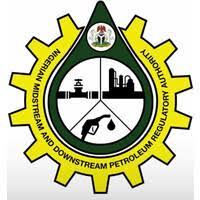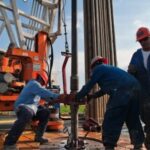
The Nigerian Midstream and Downstream Petroleum Regulatory Authority has said it plans to recommence the Health and Safety Environmental technical audits.
Deputy Manager, Health Safety Environment & Community, NMDPRA, Rukhayat Akanbi, made the disclosure at a one-day stakeholders workshop organised for the Independent Petroleum Marketers Association of Nigeria’s South-West region on Wednesday in Lagos.
According to her, the technical audit outcome will be used in liaison with other directorates in the issuance of various licenses in the downstream sector.
“This will no longer be business as usual. It is now safety first. The NMDPRA would ensure that the aspirations of the Federal Government by passing the PIA are achieved,” he said.
Akanbi added that the technical audit will also evaluate the adequacy of the HSE requirements, competency and training of staff engaged by operators.
Speaking on the theme of the workshop, ‘Incessant Incidents in the Midstream and Downstream Sector of The Nigerian Petroleum Industry’, she stated that 412 deaths were recorded in 244 incidents from 2018 till the present.
“The fatalities were recorded as a result of the employment of unskilled workers in the sector, and although we have been working to make sure that such incidents do not occur. However, this time around, we are doubling our efforts in making sure that the fatality rate drops to zero,” she said.
According to her, a breakdown of the death rates showed that a total of 173 deaths in 103 incidents were recorded in 2021, making it the highest so far, while in 2022, 48 deaths were recorded in 41 incidents.
She further stated retail outlets recorded the highest number of incidents over the years – 39 per cent: 13 per cent by vehicle tankers, 13 per cent at refineries, 13 per cent at gas facilities, and 11 per cent at depots.
Akanbi also listed other causes of the fatalities as: not allowing the truck to settle before beginning to discharge, failure to ground the truck, discharging during high temperatures, maintenance works on the truck while discharging, discharging and dispensing simultaneously, as well as detecting leaks on the truck.
While delivering his address, Executive Director, HSEC, Dr Mustapha Lamorde, said NMDPRA recognised the importance of safety in the oil and gas industry and had taken the step of convening the discourse with stakeholders.
He explained that the purpose of the discussion on Health Safety and Environment was to call for sound management of HSE in the depots/jetties and retail outlets operations in the downstream sector.
“This, of course, is key for adequate profitability in the sector. The proper approach to achieve this lies in the fact that HSE should be managed from a business perspective and not for compliance purposes only. This is to say that HSE-related matters should be integrated into the management decision-making process,” he added.
Regional Coordinator, South-West region of NMDPRA, Engineer Ayo Cardoso, said there was a need to enlighten operators to comply with relevant HSE and regulations, as stipulated in the Petroleum Industry Act.













